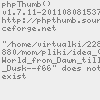Idea
.jpg)
When they were born, twenty-something years ago, the world was undergoing radical changes. The era of the Cold War between two antagonistic systems was ending, the Soviet Union had collapsed, the Berlin Wall came down. Their parents lived on the same – eastern – side of the Iron Curtain. Young Poles, Ukrainians, Belarusians grew up in such circumstances.
Today they are in their twenties and entering adulthood. They are facing the dilemma of what to do with their lives. How they see the world, what’s important to them, how they perceive their surroundings, how they fit into their communities. How they see their peers, what perspectives they have, what their dreams are.
Those universal questions, which young people ask themselves all over the world, are especially important for them as the winds of history once again blow from the Kiev Euromaidan. When various visions of the world and value systems collide, a new, previously-undefined order arises.
At this important moment of history we invited young filmmakers from Poland, Ukraine and Belarus and offered them the chance to make original, very personal films, whose protagonists would be their peers – young people at the beginning of their adult lives. We wanted them to create profound, intimate, psychological portraits of their characters. We wanted the makers to reach profound truths about young people by entering all aspects of their lives.
Having carried out the project The World From Dawn Till Dusk over the last few years, we have met many young people. We have had a wonderful opportunity to profoundly enter their reality and become acquainted with their problems. We are impressed by their sensitivity, passion and talent.
Our idea Young People about Themselves came about because of these meetings.Whenwe contacted our Ukrainian students to invite them to join the project, it turned out that all of them were on the Euromaidan with cameras and were filming what was happening. They were literally carrying out documentation for their next films. They responded enthusiastically to our suggestion, so we decided to have our first meeting in Kiev.
KIEV
April 2014
A group of several dozen young filmmakers from Ukraine, Belorus and Poland met in Kiev in April 2014. In an atmosphere imbued by the historical events taking place around us, breathing in the smoke of burning tyres from the nearby Maidan, we worked from dawn till dusk with a shared conviction of the important mission the films which would be shot within the project would be playing. We had the opportunity to watch the archive footage taken by our Ukrainian students. We were impressed not only by the content, which described the shocking events from a direct, emotional perspective, but also by the interesting form: the harmony of composition, expression of lighting and dynamism of movement.
The filmmakers presented several dozen fascinating projects, which underwent thorough analysis. It was suggested that some of them needed additional documentation and material. During the eight-day-long workshop we also had the opportunity to come into direct contact with the protagonists and the locations where the events took place. Both the meeting with the mariners of a warship disarmed in Crimea, and a visit to Institution Street where 101 people died from snipers’ bullets – the so-called “Heavenly Sotnya” – made great impressions on us.
As a result of the workshop more than ten projects were selected to continue being developed at the next meeting in Warsaw.
WARSAW
June 2014
Following the workshop in Kiev the makers of the selected projects continued to work on their development. The first synopsises were written and the first selections of film material made. We had the opportunity – during an online teleconference – to discuss the current state of the projects once again. The next phase took place at the beginning of June: a workshop in Warsaw, where the final versions of the screenplays and trailers were made. Pitching took place on the final day, when each filmmaker was given 10 minutes to showcase their project in the form of a filmed trailer and also to appear in person in front of a group of commissioning editors from Polish television and film institutions. The pitching session was open to journalists and the public. As we predicted the result of the pitching were concrete declarations of coproduction. We can now move to the project’s next phase: production of the films.